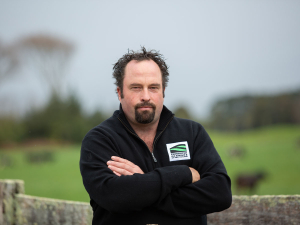Federated Farmers dairy chair Richard McIntyre believes farmers won't be too concerned with last week's Global Dairy Trade (GDT) price drop.
He points out that while the price drop across the board wasn't something farmers wished to wake up to, it was just one auction.
"We know the GDT auction has ebbs and flows throughout the year and a lot depends on demand and supply throughout the world," he told Dairy News.
McIntyre says milk processors factor these things in when forecasting milk price to their suppliers.
"This is just one auction. Farmers will be watching closely the next few auctions."
Last week's auction saw big falls in 'fats' prices: AMF prices dropped 10.7% and butter 10.2%. Whole milk powder prices dropped 4.3% to US$3,218/tonne. Overall prices still sit above long-term averages (3.6% over the 10-year average) although the key WMP price is now just below the 10-year average and almost 6% below its 5-year average.
Westpac chief economist Kelly Eckhold says futures markets had suggested a significant move down in prices was likely following the fall in prices at the GDT "Pulse" auction.
"There is a growing view that the significant run up in 'fats' prices - especially anhydrous milk fat - may have run their course and that the current higher price levels are encountering buyer resistance."
Southeast Asian buyers took up a higher proportion of product and Middle Eastern buyers stepped back.
Demand from China/North Asia appeared relatively stable in last week's auction.
Eckhold says such a large fall in prices naturally increases uncertainty on future auction developments.
"The fall in prices balances up our previous upside risks on our 2025 milk price forecast of $8.40. Futures market prices still look consistent with that kind of outcome."
Fonterra has a forecast midpoint of $8/kgMS.
McIntyre says an $8 milk price "is only break-even" for most farmers.
"For the average farmers, there's not huge amount of headroom with a $8 payout. If it drops, then that will make things quite uncomfortable for a lot of them," he says.
McIntyre says that while on-farm inflation is easing, interest rates remain high.


















